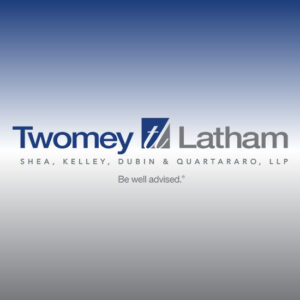Twomey Latham Senior Partner Christopher Kelley has been working for more than a year with one of our clients to amend the East Hampton Town Code to allow the leveraging of capital of both developers and employers in the Town to create workforce housing for needy workers.
I. NEED
Clients, 350 Pantigo Road LLC and Kirby Marcantonio, working with Mr. Kelley, have developed a concept for workforce housing. By way of canvassing local businesses and institutions regarding their interest they determined that there is a great need for and interest in affordable multiple residence housing units to be employer owned and provided to eligible employees. Included in the informal canvassing has been Stony Brook Southampton Hospital, resorts and restaurants, school districts, private golf clubs and municipal agencies. The type of housing is specifically geared towards providing the necessary staffing for local services and businesses who have not been able to build or maintain permanent staff because of the high cost of local housing and the transportation difficulties associated with commutes from other places on Long Island. Unlike most of the Town’s affordable housing stock, it is not envisioned to assist low income clients,
exclusively, although low income employees of certain businesses would be beneficiaries.
In his discussions with his clients and contacts in the community, Mr. Marcantonio has received offers to purchase the housing units to be built if the regime proposed can be implemented and has more requests to purchase than can possibly be met in the short term. One of the most pressing potential purchasers is Stony Brook Southampton Hospital, which in addition to providing personnel for its hospital and medical facilities in Southampton, is anticipating difficulty in staffing the under-construction remote emergency room in East Hampton. It is also having already to provide housing in the community for its doctors to keep them in the area.
II. GOALS
The goal of the proposal is to facilitate the creation of workforce housing through private development. Why through private development? From any view of the affordable housing efforts in East Hampton to date, a few things are apparent. Almost all the housing is provided either on publicly owned land and/or with public funding and supplemented by grants, federal tax credits etc. The result is numerous constraints on the housing limiting it to those with a very low income and building into the process certain expenses associated with prevailing wage construction. In addition, Federal and State regulations regarding the selection of potential tenants and their eligibility prevents the Town from limiting availability to persons either already residing in East Hampton or who are already employed in East Hampton Town. The goal of this proposal is to create a type of housing for moderate income families that avoids these various pitfalls and can be constructed by the private sector on a for-profit basis at less expense than the Housing Authority or the Town can provide it, and with fewer restrictions as to who can occupy it. In essence, the goal is to incentivize the private sector to provide affordable housing that will benefit local businesses and their local employees. This effort was recognized in a recent New York Time article entitled the “Perilous Existence of a Hamptons Day Laborer.”
III. THE PROPOSAL FOR WORKFORCE HOUSING AMENDMENTS TO THE AFFORDABLE HOUSING OVERLAY DISTRICT (AHOD)
Envisioned as an alternative and distinct form of affordable housing as part and parcel of the existing Affordable Housing Overlay District in the Town Code, the proposed Code amendments would revolutionize the financial and ownership structure of affordable housing in the Town. They modify the existing special permit standards for affordable housing developments contained in Town Code §255-5-50. The potential occupants of the privately developed affordable housing units could range from a chef or dishwasher at a local restaurant to a doctor or teacher or policeman or other first responder. The units would be purchased and owned by the employer to provide to their employees as low or zero rent rentals as part of the employees’ compensation package. The tenancies would be limited to moderate income tenants (as defined in the Town Code as families earning up to 130% of MFI) similar to the housing units that are allowed in apartments within commercial structures pursuant to Town Code §255-5-50. An exception to the moderate income limitation would be made for “essential workers” as defined in the amendments.
All projects would require a Special Permit and Site Plan approval to be issued by the East Hampton Town Planning Board. The Planning Board could approve densities up to 12 units per acre where a sewage treatment plant is to be constructed by the developer. All approved projects would be subject to recorded Covenants and Restrictions required by the Planning Board relating to the sale and management of units and employee/tenant leasing. In addition, the owner will be required to contract with the Town to guarantee the housing is used for the intended goal of housing moderate income employees employed within the Town.
The clients and attorney Kelley are hopeful of presenting a similar plan to amend the Southampton Town Code to seek to achieve the same goals in Southampton of employer owned workforce housing.






